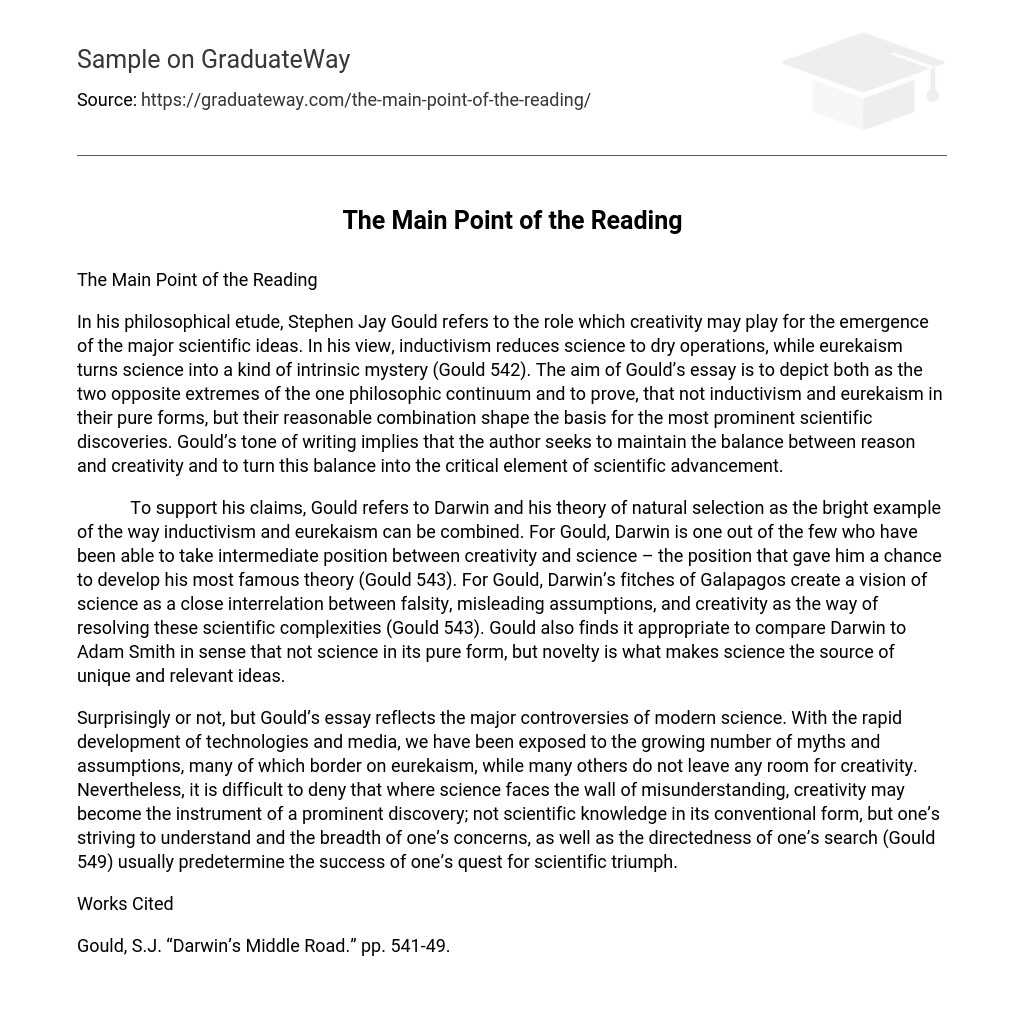In his philosophical etude, Stephen Jay Gould refers to the role which creativity may play for the emergence of the major scientific ideas. In his view, inductivism reduces science to dry operations, while eurekaism turns science into a kind of intrinsic mystery (Gould 542). The aim of Gould’s essay is to depict both as the two opposite extremes of the one philosophic continuum and to prove, that not inductivism and eurekaism in their pure forms, but their reasonable combination shape the basis for the most prominent scientific discoveries. Gould’s tone of writing implies that the author seeks to maintain the balance between reason and creativity and to turn this balance into the critical element of scientific advancement.
To support his claims, Gould refers to Darwin and his theory of natural selection as the bright example of the way inductivism and eurekaism can be combined. For Gould, Darwin is one out of the few who have been able to take intermediate position between creativity and science – the position that gave him a chance to develop his most famous theory (Gould 543). For Gould, Darwin’s fitches of Galapagos create a vision of science as a close interrelation between falsity, misleading assumptions, and creativity as the way of resolving these scientific complexities (Gould 543). Gould also finds it appropriate to compare Darwin to Adam Smith in sense that not science in its pure form, but novelty is what makes science the source of unique and relevant ideas.
Surprisingly or not, but Gould’s essay reflects the major controversies of modern science. With the rapid development of technologies and media, we have been exposed to the growing number of myths and assumptions, many of which border on eurekaism, while many others do not leave any room for creativity. Nevertheless, it is difficult to deny that where science faces the wall of misunderstanding, creativity may become the instrument of a prominent discovery; not scientific knowledge in its conventional form, but one’s striving to understand and the breadth of one’s concerns, as well as the directedness of one’s search (Gould 549) usually predetermine the success of one’s quest for scientific triumph.
Works Cited
Gould, S.J. “Darwin’s Middle Road.” pp. 541-49.





